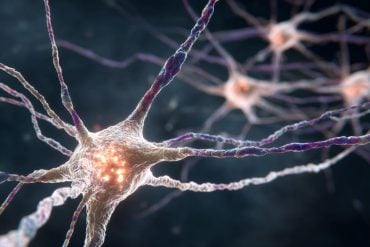Summary: A large U.S. medical records study has found that adults prescribed gabapentin six or more times for chronic low back pain face significantly higher risks of dementia (29%) and mild cognitive impairment (85%) within 10 years. The risks were especially pronounced in younger adults aged 35–64, where rates of cognitive decline more than doubled or tripled compared to those not on the drug.
The findings suggest a dose-response relationship, with more frequent prescriptions correlating with higher risks. While observational and not proof of causation, the study underscores the need to monitor patients on long-term gabapentin for signs of cognitive decline.
Key facts:
- Adults prescribed gabapentin ≥6 times were 29% more likely to develop dementia and 85% more likely to develop mild cognitive impairment.
- Risks were more than doubled in 35–64 year olds compared to unprescribed peers.
- The more prescriptions filled, the higher the risk of cognitive decline.
Source: BMJ
Receiving six or more prescriptions of the drug gabapentin for low back pain is associated with significantly increased risks of developing dementia and mild cognitive impairment (MCI)–29% and 85%, respectively—finds a large medical records study published online in the journal Regional Anesthesia & Pain Medicine.
What’s more, these risks were more than twice as high in those normally considered too young to develop either condition—18-64 year olds—the findings indicate.
Credit: Neuroscience News
Unlike opioids, gabapentin has relatively low addictive potential, and it has become increasingly popular for the treatment of chronic pain, especially neuropathic pain, as it offers potentially neuroprotective benefits, point out the researchers.
But concerns are beginning to emerge about its side effects, including a possible association with neurodegeneration, although the findings to date have been mixed, including if particular age groups might be more vulnerable they add.
In a bid to shed more light on these issues, the researchers drew on real-time data from TriNetX, a federated health research network, which contains electronic health records from 68 healthcare organisations across the USA.
They scrutinised the anonymised records of adult patients who had and hadn’t been prescribed gabapentin (26,414 in each group) for chronic low pain between 2004 and 2024, taking account of demographics, co-existing conditions, and the use of other analgesic drugs.
Those who had received six or more gabapentin prescriptions were 29% more likely to be diagnosed with dementia and 85% more likely to be diagnosed with MCI within 10 years of their initial pain diagnosis.
And when the records were stratified by age, 18–64 year olds prescribed the drug were more than twice as likely to develop either condition than those who hadn’t been prescribed gabapentin.
While there was no heightened risk among 18–34 year olds prescribed the drug, the risks of dementia more than doubled and those of MCI more than tripled among 35–49 year olds prescribed it. A similar pattern was observed among 50–64 year olds.
Risks also rose in tandem with prescription frequency: patients with 12 or more prescriptions were 40% more likely to develop dementia and 65% more likely to develop MCI than those prescribed gabapentin between 3 and 11 times.
This is an observational study, and as such, no firm conclusions can be drawn about cause and effect. The researchers also acknowledge that their study was retrospective, and they weren’t able to account for dose or length of gabapentin use.

Nevertheless, they conclude: “Our findings indicate an association between gabapentin prescription and dementia or cognitive impairment within 10 years. Moreover, increased gabapentin prescription frequency correlated with dementia incidence.”
They add: “Our results support the need for close monitoring of adult patients prescribed gabapentin to assess for potential cognitive decline.”
About this neuropharmacology and cognitive decline research news
Author: Hannah Ahmed
Source: BMJ
Contact: Hannah Ahmed – BMJ
Image: The image is credited to Neuroscience News
Original Research: Open access.
“Risk of dementia following gabapentin prescription in chronic low back pain patients” by Chong H Kim et al. Regional Anesthesia & Pain Medicine
Abstract
Risk of dementia following gabapentin prescription in chronic low back pain patients
Introduction
Gabapentin is widely used to treat chronic pain, but its association with cognitive decline and dementia remains unclear. This study examined whether gabapentin prescription is associated with dementia in adults with chronic low back pain.
Methods
We conducted a retrospective cohort study using the TriNetX national database of de-identified patient records from 2004 to 2024. Adults diagnosed with chronic low back pain were included; those with prior gabapentin use, dementia, epilepsy, stroke, or cancer were excluded.
Propensity score matching controlled for demographics, comorbidities, and pain medications. Patients were stratified by age and gabapentin prescription frequency. Primary outcomes were dementia and mild cognitive impairment.
Results
26,416 adults we analyzed following propensity-score matching. Patients with six or more gabapentin prescriptions had an increased incidence of dementia (RR: 1.29; 95% CI: 1.18–1.40) and mild cognitive impairment (RR: 1.85; 95% CI: 1.63–2.10). When stratified by age, non-elderly adults (18–64) prescribed gabapentin had over twice the risk of dementia (RR: 2.10; 95% CI: 1.75–2.51) and mild cognitive impairment (RR: 2.50; 95% CI: 2.04–3.05) compared to those not prescribed gabapentin.
Risk increased further with prescription frequency: patients with 12 or more prescriptions had a higher incidence of dementia (RR: 1.40; 95% CI: 1.25–1.57) and mild cognitive impairment (RR: 1.65; 95% CI: 1.42–1.91) than those prescribed gabapentin 3–11 times.
Conclusions
Gabapentin prescription in adults with chronic low back pain is associated with increased risk of dementia and cognitive impairment, particularly in non-elderly adults. Physicians should monitor cognitive outcomes in patients prescribed gabapentin.







